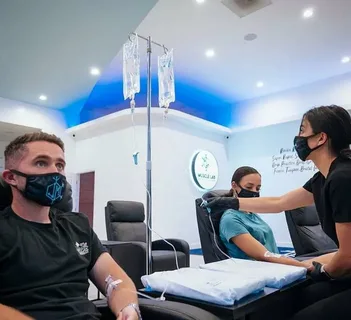Insomnia, the persistent difficulty in falling or staying asleep, affects millions of people worldwide. While occasional sleepless nights are common, chronic insomnia can severely impact one’s quality of life. For those who find themselves battling sleeplessness regularly, consulting an insomnia doctor may be the key to regaining restorative sleep. This article explores what an insomnia doctor does, when to seek their help, and the treatment options available.
Who Is an Insomnia Doctor?
An insomnia doctor is a medical professional specializing in diagnosing and treating sleep disorders, including insomnia. These experts may include sleep medicine specialists, psychiatrists, or neurologists, depending on the underlying causes of the condition. They possess the knowledge and tools to assess the physiological, psychological, and lifestyle factors contributing to insomnia.
Signs You Need to Consult an Insomnia Doctor
Persistent insomnia can disrupt daily life in significant ways. Here are some signs that indicate it’s time to seek professional help:
- Chronic Sleeplessness: Difficulty falling or staying asleep for more than three nights a week over several months.
- Daytime Impairment: Fatigue, irritability, or trouble concentrating due to lack of sleep.
- Underlying Health Conditions: Sleep difficulties linked to chronic pain, depression, or anxiety.
- Dependency on Sleep Aids: Overreliance on over-the-counter or prescription sleep medications.
If any of these issues resonate, an insomnia doctor can provide a comprehensive evaluation and recommend tailored treatment options.
How Insomnia Doctors Diagnose Sleep Issues
The diagnostic process for insomnia involves a detailed assessment of your sleep habits and overall health. During the initial consultation, an insomnia doctor may:
- Conduct a Sleep History Review: Questions about bedtime routines, sleep duration, and environmental factors.
- Perform a Physical Examination: To rule out medical conditions like sleep apnea or restless leg syndrome.
- Recommend a Sleep Study: A polysomnography test may be suggested for in-depth analysis of your sleep patterns.
This thorough approach ensures the treatment targets the root cause of your insomnia rather than just the symptoms.
Treatment Approaches by Insomnia Doctors
Insomnia doctors employ a variety of strategies to help patients achieve better sleep. Treatments can be customized based on the type and severity of insomnia:
1. Cognitive Behavioral Therapy for Insomnia (CBT-I)
This evidence-based therapy focuses on changing negative thoughts and behaviors associated with sleep. CBT-I is highly effective for treating chronic insomnia without medication.
2. Medication Management
In some cases, short-term use of sleep aids may be prescribed. Insomnia doctors carefully monitor their use to prevent dependency and side effects.
3. Lifestyle Modifications
Simple changes, such as establishing a consistent sleep schedule, reducing caffeine intake, and improving sleep hygiene, can make a significant difference.
4. Treatment of Underlying Conditions
Addressing co-existing conditions like anxiety, depression, or chronic pain often resolves sleep issues as well.
Tips for Choosing the Right Insomnia Doctor
Finding the right insomnia doctor is crucial for effective treatment. Consider the following tips:
- Check Credentials: Look for board-certified sleep specialists or professionals with expertise in sleep medicine.
- Seek Recommendations: Ask your primary care physician or trusted friends for referrals.
- Prioritize Communication: Choose a doctor who listens to your concerns and explains treatment options clearly.
Final Thoughts
Insomnia can feel like an unrelenting battle, but help is available. Consulting an insomnia doctor is a proactive step toward reclaiming your nights and improving your overall well-being. With the right diagnosis and treatment plan, you can enjoy peaceful, rejuvenating sleep and wake up ready to embrace life’s challenges.
Remember, there’s no need to endure sleepless nights alone—professional support is just a call away.



